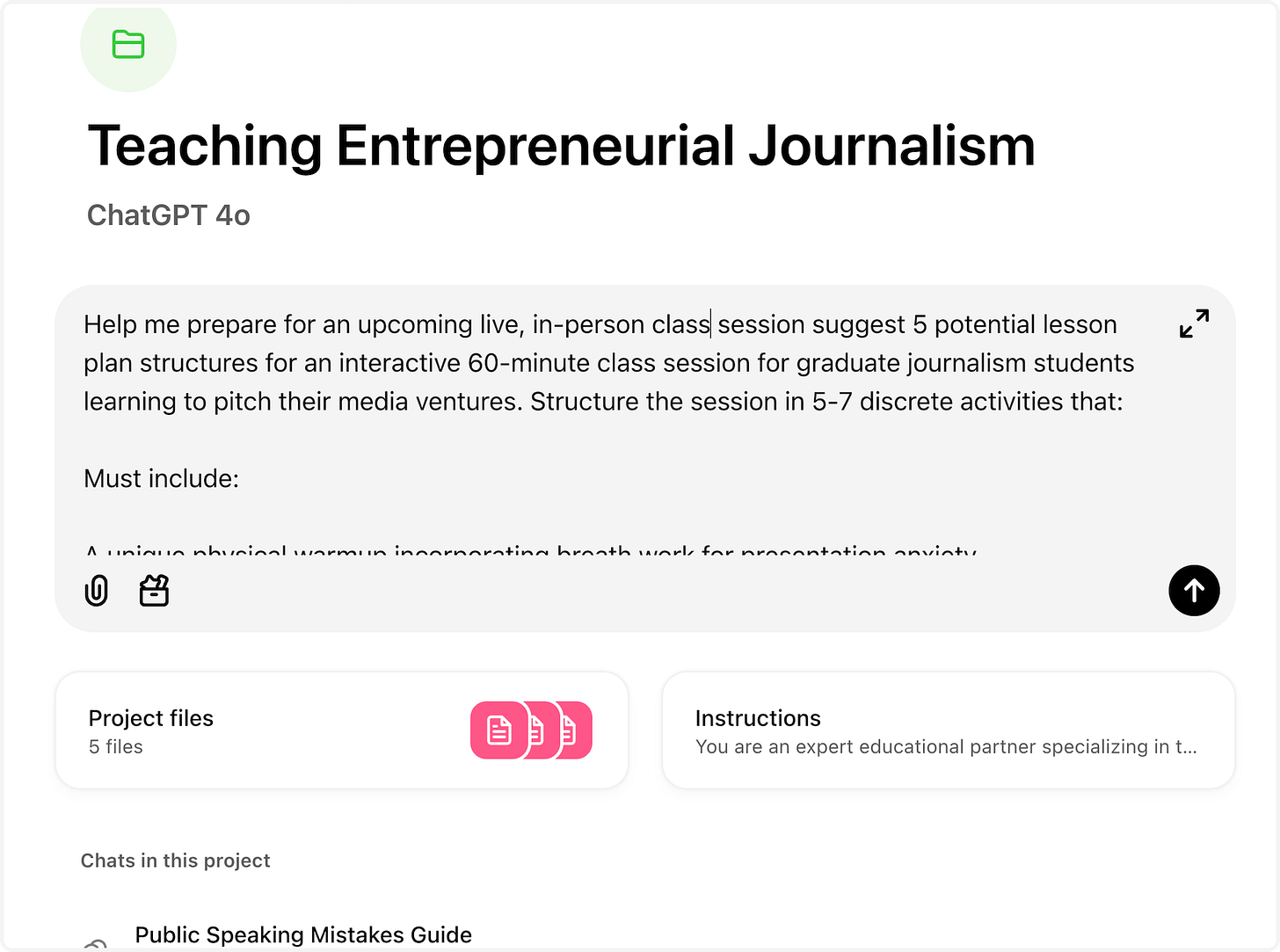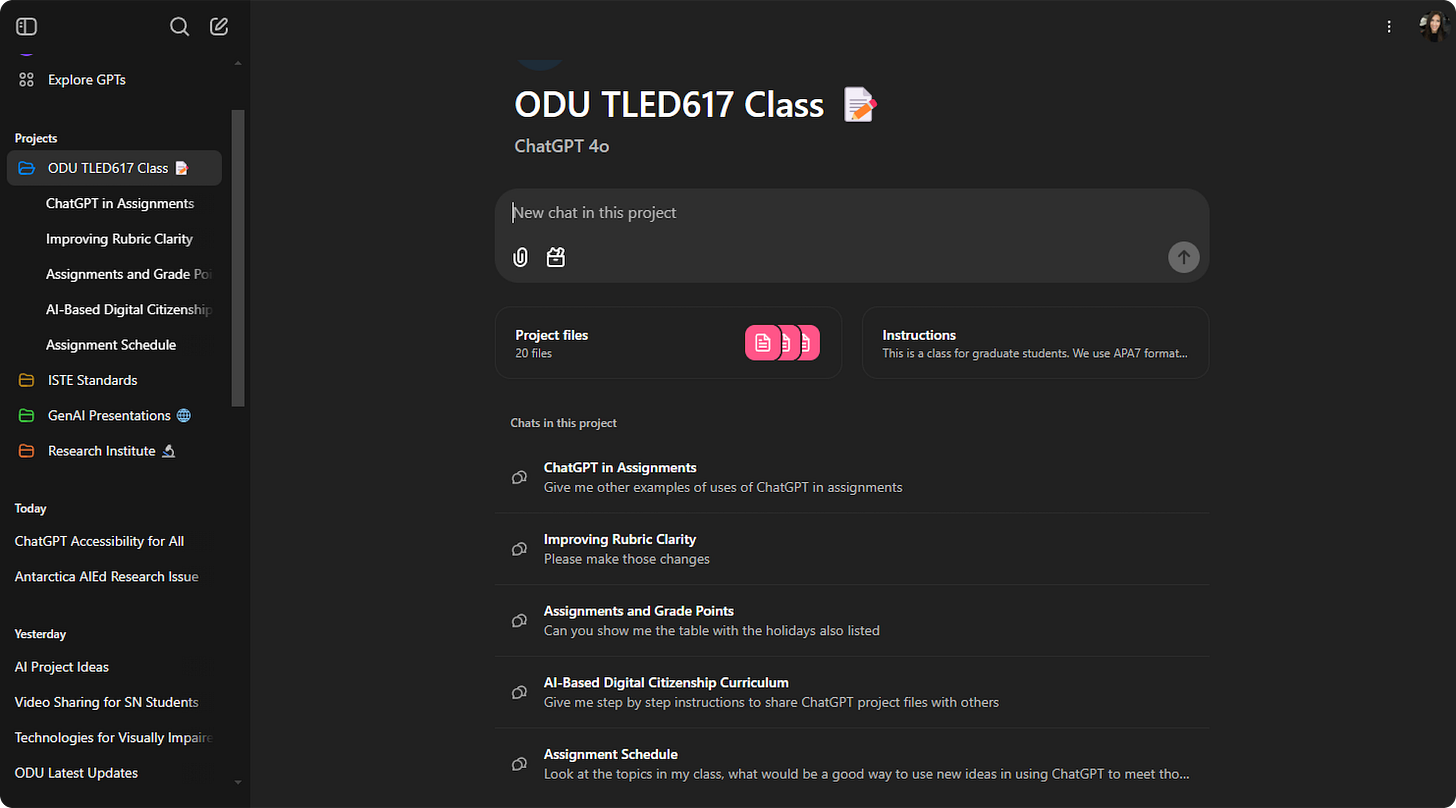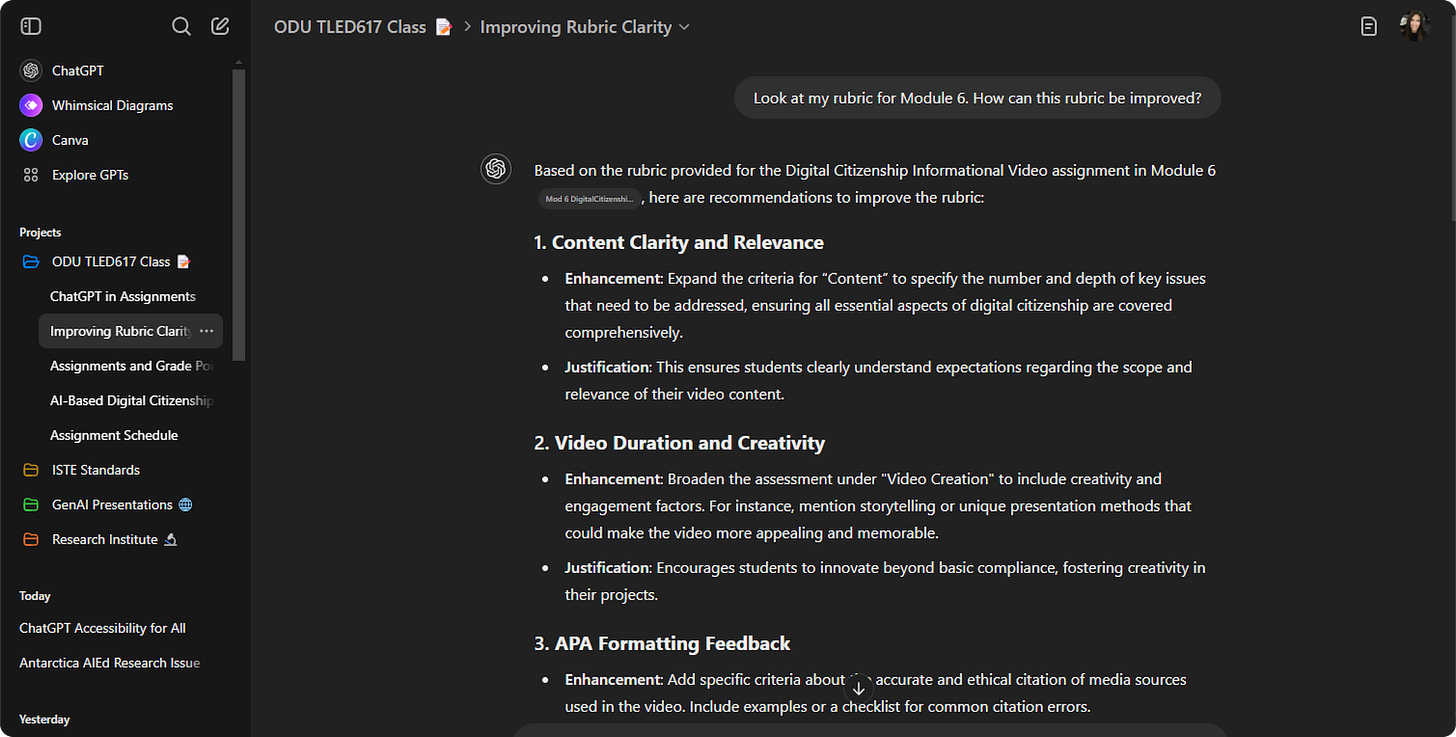Last week, we introduced Projects — a new way to organize and customize your chats. Let’s see how two educators are using Projects to improve their workflows.
and Director of Teaching and Learning at the Craig Newmark Graduate School of Journalism at CUNY shares how Projects helps him manage multiple courses:
As educators, many of us are teaching multiple classes in different formats — one might be online, another in-person, and we might even be teaching a one-day workshop alongside an ongoing semester-long course. What I’ve found helpful is using the Projects feature to organize my work for each class.
I set up a separate Project for every course, and each one includes course-specific context in its instructions: whether it’s online or in person, the format, the level of the students, the expectations of the class, and insights from past experiences teaching that material. I also upload course-specific materials as the Project files, like the syllabus, assignments, past lesson plans and my lesson notes for each one.
By separating these into distinct projects, I prepare for a particular class and know the AI has all the relevant material to guide me effectively.
Helen Crompton, Professor of Instructional Technology at Old Dominion University and the Executive Director of the Research Institute for Digital Innovation in Learning at ODUGlobal, also uses Projects to provide specific context for each of her courses — and then uses ChatGPT as a collaborative thought partner:
I start by using the instructions box in Projects to tell it about my class, outlining objectives, specifying the graduate level of my students and our use of APA 7 formatting. I then upload essential files, including the syllabus, schedule, rubrics, and assignments, to provide data for ChatGPT to understand my class.
Using these resources, I had ChatGPT assist me in various ways. For example, I asked it to:
Review my assignments for alignment with learning objectives and offer suggestions for improvement
Develop a class schedule for the upcoming semester
Use the search feature to explore how other educators have utilized ChatGPT in assignments to promote critical thinking
Help me develop new assignments with diverse assessment options
Review my existing rubrics for greater clarity and alignment with learning objectives
As I prepared my class revisions, I also asked ChatGPT to identify areas where alignment, accessibility, or instructional clarity could be enhanced. I appreciate how it provides bespoke assistance, leveraging the context of my class through the data I have shared. It acts as a thought partner, working at great speed to critique, offer suggestions, create artifacts, and format content tailored to the specific needs of my students.
We’ve rolled out Projects to ChatGPT Plus, Pro, and Teams users, with plans to soon extend access to free, ChatGPT Enterprise, and ChatGPT Edu users. We look forward to hearing the creative ways you use Projects in your work!
Share your use cases, ideas, and feedback for Projects in the comments! We’ve heard educators want their Projects to be shareable — any other feature requests? We’re listening. 👂
makes sense of the biggest AI launches from the past month and how some may reshape the future:
Business schools produce specialists — graduates defined by their expertise in HR, marketing, or other areas. But as AI blurs the boundaries between fields and fosters interdisciplinary work, the relevance of narrowly defined disciplines may diminish, forcing schools to reconsider how they structure curricula. ‘I wonder to what extent today’s sub-disciplines, such as marketing or accounting, will still play a role in the future?’
—Lucerne School of Business Professor Patricia Feubli in Forbes
Generative AI Is Coming for Business Schools
‘Failure to incorporate AI literacy right now may leave students inadequately prepared for the future. Students are constantly bombarded by a mixture of information, misinformation and disinformation. Educators need to help our students to navigate this very complex media landscape, to help them differentiate between what’s factual, what’s misinformation.’
—Sharon, Massachusetts, public schools Library and Media Specialist Cathy Collins in Education Week
Without AI Literacy, Students Will Be ‘Unprepared for the Future,’ Educators Say
Philadelphia’s School District partnered with the University of Pennsylvania’s Graduate School of Education to launch a structured and forward-looking approach to AI implementation. ‘We must prepare our students for a future where technology will be central to their success, by equipping educators with the tools and training they need.’
—Philadelphia Superintendent Tony Watlington in Forbes
Philadelphia Schools to Embrace AI in 2025



